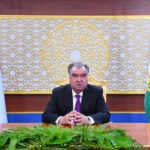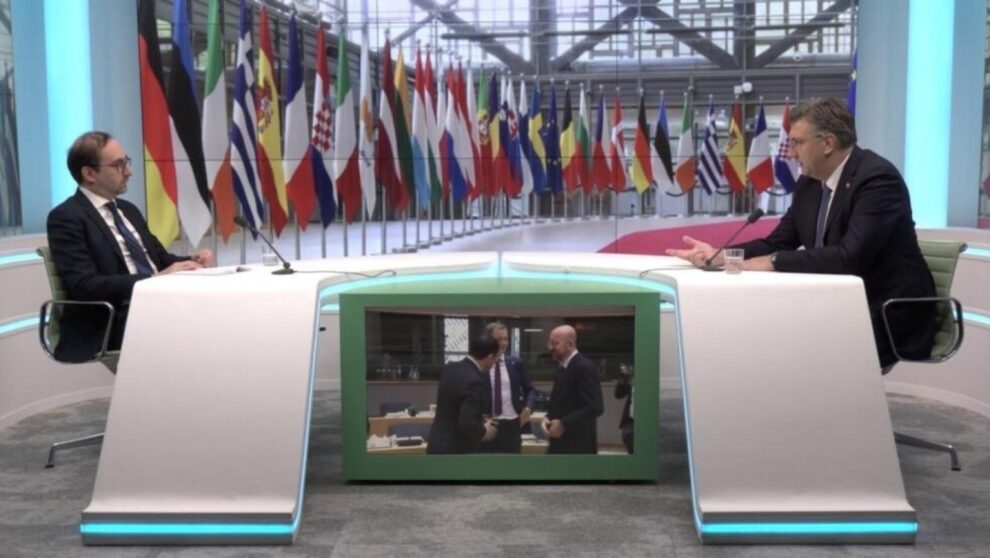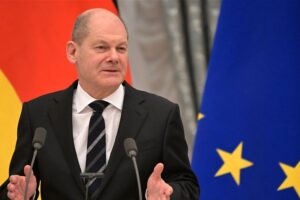Talking Europe hosts Andrej Plenkovic, the prime minister of Croatia. We unpack the dense agenda of the October 26-27 EU Council and debrief the summit’s conclusions on the Israel-Hamas war, particularly the call for “humanitarian corridors and pauses” to ensure aid to the Palestinians in Gaza. We also discuss developments in southeastern Europe, such as the recent re-introduction of border checks, and ask what those mean for Croatia and the other countries concerned.
“The European Union today is indeed surrounded by a series of very big crises. I don’t recall any time in the last 30 years when we had so many crises at the same time. We have Putin‘s aggression against Ukraine, Hamas’s attack on Israel, and all of this in the context of the intensified flows of illegal migration. The situation in Africa, especially sub-Saharan Africa, is complicated. So there are problems wherever we turn our head to,” Plenkovic notes.
Asked about the recent re-introduction of border checks in the EU, he says: “Once the Hamas terrorist attack took place, Italy decided to reintroduce its internal border control vis-a-vis Slovenia and hence, by some sort of automatic follow up, Slovenia did it within 24 hours vis-à-vis Hungary. I believe that this is a signal to public opinions that governments are caring more about security, but whether such move will actually prevent terrorist attacks or a rise in extremism? I don’t think so. I think the real way is to increase cooperation between our police services and try to exchange as much information as possible, and protect our borders at the real external borders of the European Union.”
When asked about the EU’s call for “humanitarian corridors and pauses” in order to get urgently-needed aid into Gaza, he explains: “We debated whether we should mention the humanitarian pauses or corridors. Everybody – seriously, everybody – respects the right of Israel to defend itself. What we wanted to say is, please, in your reaction, respect international law, respect humanitarian law, and please avoid civilian casualties by all means. We care about civilians in Gaza; that is why that part of the [summit] conclusions exist. The European Union has tripled its humanitarian aid to Palestine, to Palestinians in Gaza, and my country has also decided to send some money through the United Nations.”
Turning to the EU’s support for Ukraine, Plenkovic says: “President Zelensky has participated in almost all of our European Councils over the last year and a half, and I think there is still very strong support among EU members for Ukraine, both in terms of political support, as Ukraine tries to reintegrate temporarily occupied territories, and also strong support in terms of financial and economic assistance to Ukraine, as well as military help.”
Finally, asked about this week’s breakdown of talks between Kosovo and Serbia, he responds: “There was an attempt to agree on the general agreement for normalisation (between Serbia and Kosovo), as well as on the agreement about the Serbian municipalities in the north of Kosovo. Unfortunately, there was no deal. This is a pity. Serbia is going again into the electoral process in December, so I don’t think it was highly likely that Serbia would sign any paper that would imply de facto recognition of Kosovo. But for me, this was another missed opportunity for Serbia and Kosovo to come to terms and move forward.”
Source : France24







































